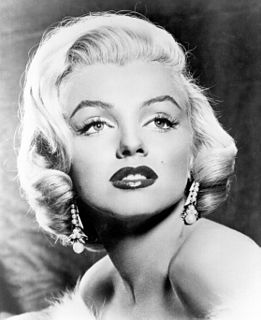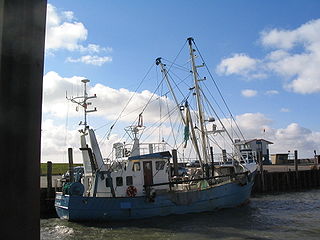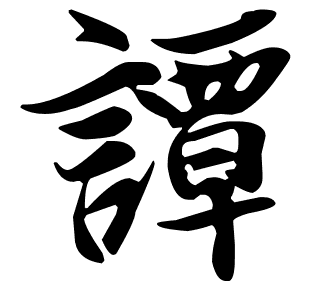See also
| This page lists people with the surname Able. If an internal link intending to refer to a specific person led you to this page, you may wish to change that link by adding the person's given name(s) to the link. |
Able is a surname. Notable people with the surname include:
| This page lists people with the surname Able. If an internal link intending to refer to a specific person led you to this page, you may wish to change that link by adding the person's given name(s) to the link. |
French may refer to:

A stage name is a pseudonym used by performers and entertainers, such as actors, comedians, singers and musicians. Such titles are adopted for a wide variety of reasons and may be similar or nearly identical to an individual's birth name. In some situations, a performer will eventually adopt their title as a legal name, although this is often not the case. Nicknames are sometimes used as part of a person's professional name.
A surname, family name, or last name is the portion of a personal name that indicates a person's family. Depending on the culture, all members of a family unit may have identical surnames or there may be variations based on the cultural rules.
Model or modeling may refer to:

Zhang is the pinyin romanization of the very common Chinese surname written 张 in simplified characters and 張 in traditional characters. It is spoken in the first tone: Zhāng. It is a surname that exists in many languages and cultures, corresponding to the surname 'Archer' in English for example. Chang is the Wade-Giles romanization; Cheung is commonly used in Hong Kong as romanization.

Chen is a common East Asian surname. It is the most common surname in Taiwan (2010) and Singapore (2000). Chen is also the most common family name in Guangdong, Zhejiang, Fujian, and Hong Kong. It is the most common surname in Xiamen, the ancestral hometown of many overseas Hoklo. Besides 陳/陈, an uncommon Chinese surname 諶/谌 (Shen) can also be romanized as Chen.

Quinn is an Anglicised form of the Irish Ó Coinn or McQuinn/MacQuinn. The latter surname means "descendant of Conn". The surname Quinn is also rendered Ó Cuinn in Irish. The surname is borne by numerous unrelated Irish families in Ulster and the Irish counties of Clare, Longford, and Mayo. The most notable family of the name are that of Thomond, a Dalcassian sept, who derive their surname from Niall Ó Cuinn who was slain at the Battle of Clontarf in 1014. This family was formerly represented by the Earls of Dunraven. Another family is that seated in Annaly, who were related to the O'Farrell lords of Longford. Other families include one seated in Antrim; one seated in Raphoe; and one called Clann Cuain, seated near Castlebar. In the seventeenth century, the surname Quinn was common in Waterford. In 1890, the surname was numerous in Dublin, Tyrone, Antrim, and Roscommon. Quinn is one of the twenty most common surnames in Ireland. It is sometimes said that the surname Quinn is borne by Catholics whilst Quin is borne by Protestants.
The Akan people of Ghana frequently name their children after the day of the week they were born and the order in which they were born. These "day names" have further meanings concerning the soul and character of the person. Middle names have considerably more variety and can refer to their birth order, twin status, or an ancestor's middle name.
Brian is a male given name of Irish and Breton origin, as well as a surname of Occitan origin. It is common in the English-speaking world. It is possible that the name is derived from an Old Celtic word meaning "high" or "noble". For example, the element bre means "hill"; which could be transferred to mean "eminence" or "exalted one". The name is quite popular in Ireland, on account of Brian Boru, a 10th-century High King of Ireland. The name was also quite popular in East Anglia during the Middle Ages. This is because the name was introduced to England by Bretons following the Norman Conquest. Bretons also settled in Ireland along with the Normans in the 12th century, and 'their' name was mingled with the 'Irish' version. Also, in the north-west of England, the 'Irish' name was introduced by Scandinavian settlers from Ireland. Within the Gaelic speaking areas of Scotland, the name was at first only used by professional families of Irish origin. It was the fourth most popular male name in England and Wales in 1934, but a sharp decline followed over the remainder of the 20th century and by 1994 it had fallen out of the top 100. It retained its popularity in the United States for longer; its most popular period there was from 1968–1979 when it consistently ranked between eighth and tenth. The name has become increasingly popular in South America - particularly Argentina and Uruguay since the early 1990s.

The United States Census of 1910, conducted by the Census Bureau on April 15, 1910, determined the resident population of the United States to be 92,228,496, an increase of 21 percent over the 76,212,168 persons enumerated during the 1900 Census. The 1910 Census switched from a portrait page orientation to a landscape orientation.

Tan, the pinyin romanization of 譚, is the 67th most common surname in China.

A mononymous person is an individual who is known and addressed by a single name, or mononym. In some cases, that name has been selected by the individual, who may have originally been given a polynym. In other cases, it has been determined by the custom of the country or by some interested segment. In the case of historical figures, it may be the only one of the individual's names that has survived and is still known today.
Tova is a given name, nickname and a surname. Notable people with this name include:
Donnelly is an Irish surname. It is the Anglicized form of the Gaelic "Ó Donnghaile", "Ó" meaning male descendant of, and Donnghaile, a personal name composed of the elements "donn" (brown), plus "gal" (valour). The name O’Donnelly is derived from the descendants of Donnghaile (Donnghal) who was the great grandson of Domhnall, King of Aileach. Early ancestors of this surname were a part of Cenél nEoghain and the Uí Néill as descendants from the line of Eógan mac Néill one of the seven sons of Niall Noígíallach.
Abler is a surname. Notable people with the surname include:
Danton is a French given name that is a form of Antoine, Titouan, D'Anton and Antonin used in France, Switzerland, Belgium, Canada, West Greenland, Haiti, French Guiana, Madagascar, Benin, Niger, Burkina Faso, Ivory Coast, Guinea, Senegal, Mauritania, Western Sahara, Morocco, Algeria, Tunisia, Chad, Central African Republic, Cameroon, Equatorial Guinea, Gabon, Republic of the Congo, Democratic Republic of the Congo, Burundi, and Rwanda. As a surname, it is unrelated to Antonius-related names, but rather people from Anthon, Isère. Notable people with this name include the following:
Cari is an English and Spanish feminine given name and surname. As an English given name, Cari is diminutive form of Caroline and an alternate form of Carrie both derived from Karl. Cari is a Spanish given name that is a short form of Caridad, a derivative of Caritas. Notable people referred to by this name include the following:
Char is a French feminine given name that is a variation of Chardonnay, Charlene, and Charlotte and a feminine form of Charles. Char is also used as a variation of Charmaine. Notable people with this name include the following:
Carlon is a given name and surname. Notable people referred to by this name include the following: